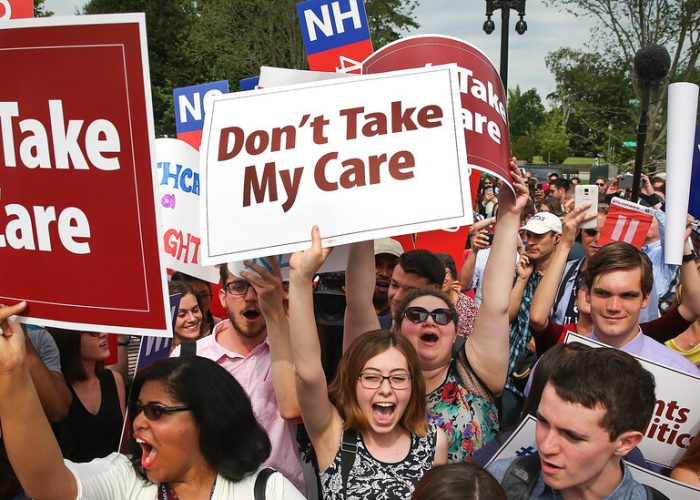They went on to argue that the mandate was a crucial feature of the law, meaning that every other part of it should be wiped out.
The challenge has largely succeeded in the lower courts. A federal judge in Texas ruled that the entire law was invalid, but he postponed the effects of his ruling until the case could be appealed. In December, the United States Court of Appeals for the Fifth Circuit, in New Orleans, agreed that the mandate was unconstitutional but declined to rule on the fate of the remainder of the health law, asking the lower court to reconsider the question in more detail.
Democratic states and the House, which intervened in the case to defend the health law, asked the Supreme Court to intervene, saying a prompt decision was needed to remove the uncertainty caused by the lower courts decisions.
The laws defenders are hoping that the Republican challengers cannot run the table on three separate legal arguments they would need to win: that they have suffered the sort of injury that gives them standing to sue; that the zeroing out of the tax penalty made the individual mandate unconstitutional; and that the rest of the law cannot stand without the individual mandate.
The Republicans also face the challenge of the enormous practical effects of striking down the law. Doing so would increase the ranks of the uninsured in the United States by more than 20 million people a nearly 70 percent increase according to new estimates from the Urban Institute.
The biggest loss of coverage would be among low-income adults who became eligible for Medicaid under the law after all but a dozen states expanded the program to include them. But millions would also lose private insurance, including young adults whom the law allowed to stay on their parents plans until they turned 26 and families whose income was modest enough to qualify for subsidies under the law that help pay their monthly premiums.
Tuesdays arguments, which will be heard by telephone, are scheduled for 80 minutes but are likely to last two hours or longer. Michael J. Mongan, the solicitor general of California, representing a coalition of liberal-leaning states, will defend the law; Kyle D. Hawkins, the solicitor general of Texas, representing a coalition of conservative-leaning states, will urge the justices to strike it down.read more
Supreme Court to Hear Arguments on Fate of Affordable Care Act


